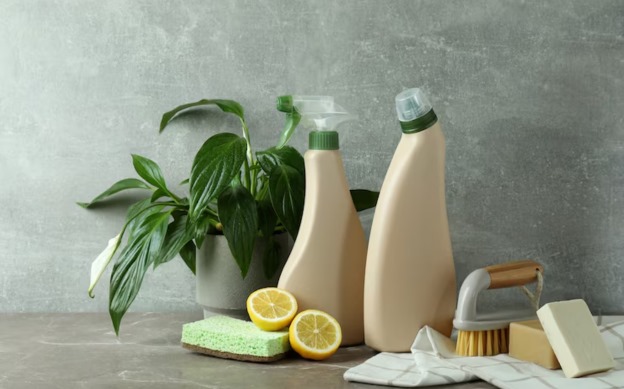Many of the body care products we use —soaps, facial cleansers and body washes, shampoo —might actually be doing us more harm than good. If you use dish washers then the story gets even more worse. Read full post to know What is in your soap?
Do you know that one of the ways your body acquires nutrients, other than eating, is through the skin. Your skin is your largest organ—and 65 percent of the substances you put on it are eventually absorbed into the bloodstream. This semipermeable membrane allows us to absorb vitamins and minerals and UV rays from the sun, but, unfortunately, it also absorbs harmful chemicals we put on it.
Chemicals in common soaps are not benign. They can disrupt our hormones, promote allergies, lead to reproductive issues and increase risk of some cancers. With serious side effects like these, we need to be particular about what we put on our skin. Safe and effective organic cleaning products from house hold items
Here are four chemicals you should watch out for when buying bathing soap , shampoo, cleansers, dish washers or any cleaning products which comes in contact with your skin.
Fragrance. “Fragrance” could actually be a cocktail of chemicals and you would never realize that. Regulators do not direct companies to disclose the breakdown of a fragrance’s ingredients to consumers because the chemicals that produce fragrance are considered “trade secrets.”
Most of the time, synthetic chemicals and cancer-causing toxins (like phthalates are used to make fragrances last longer) are hiding under that one nice sounding term. Constant exposure to fragrances has been shown to negatively impact the central nervous system and can trigger allergies, migraines and asthma symptoms.
Parabens. These ingredients are estrogen mimickers—meaning that once applied to the skin, they enter the bloodstream, and the body mistakes them for estrogen. When the body thinks there is an abnormally high amount of estrogen present in the bloodstream due to the presence of these hormone disrupters, it reacts in various ways: decreasing muscle mass, increasing fat deposits, causing early onset of puberty and spurring reproductive difficulties in both men and women.
Sulfates. These chemicals are used to produce lather and bubbles in soap. Some common sulfates are SLS (sodium lauryl sulfate) and SLES (sodium laureth sulfate). Sulfates strip the skin of its natural oils and increase penetration of the skin’s surface. They are also irritants for people with sensitive skin or eczema.
Triclosan. This chemical is most often found in antibacterial soap. Recent studies have found that triclosan actually promotes the emergence and growth of bacteria resistant to antibiotic cleansers. It also creates dioxin, a carcinogen that has been found in high levels in human breast milk.
Dioxins have disruptive effects on the endocrine system and negatively affect thyroid functions.
Think about it. If we are washing our bodies with soap that contains harmful ingredients every single day, this adds up over a lifetime to wreak havoc on our health.
It is the responsibility of us- consumers, to make informed decisions as to what does and doesn’t go on our skin and to educate ourselves on the ingredients constituting any product which is applied on our skin or ingested by us. Be aware and be safe.
Choose high-quality soap and body wash free of these four hormone-disrupting toxic additives. In other wordsuse soap made from pure and natural ingredients, and improve the health and safety of your family members.



